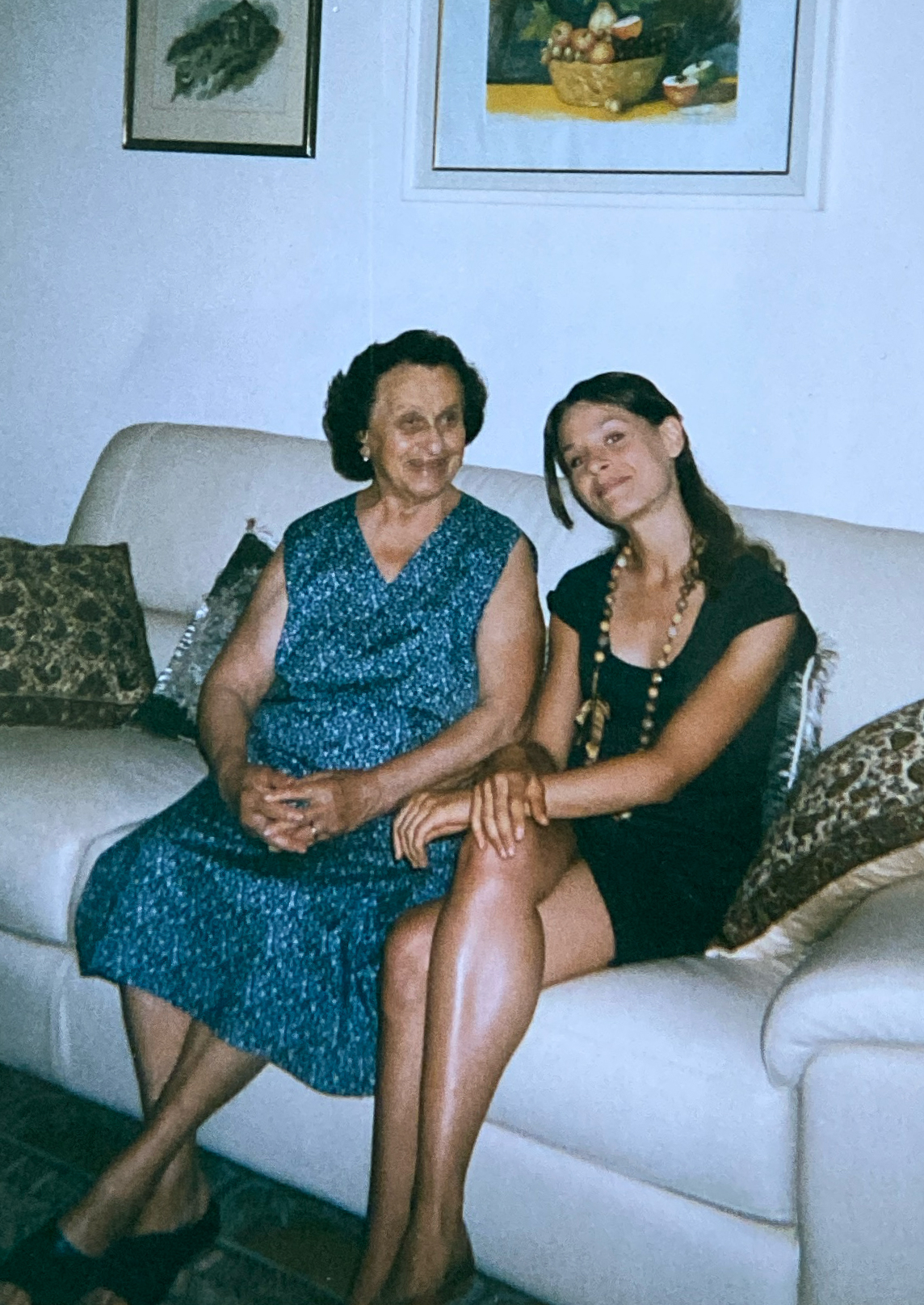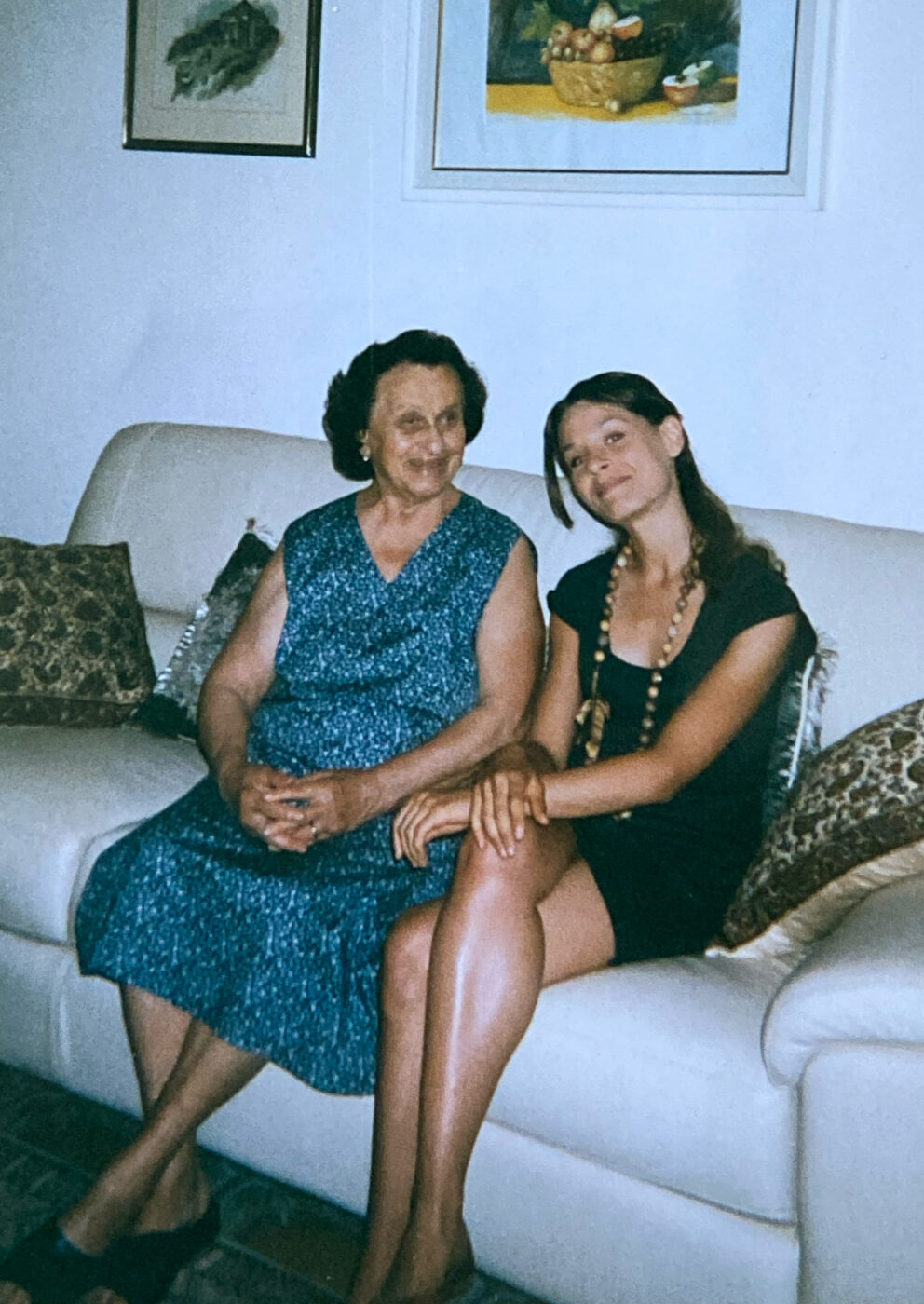I was born and raised in a tiny village of 500 people in the Venetian countryside, surrounded by miles and miles of flatlands dotted with sleepy villages like mine–a place with no apparent rhyme or reason outside of its rural vocation.
It hasn’t always been this way, or so I am told. The land was diversified, fertile, and, more importantly, populated. Canals were crystal clear and full of fish. The abandoned farmhouses that punctuate today’s landscape were once active centers of food production and consumption–of cereals, fruits, vegetables, and courtyard animals. They were also places where culture, in the form of farming and cooking knowledge, was preserved and perpetuated by unwritten recipes and a waste-not-want-not mindset. It is on farms like these that my grandparents spent their lives working to put food on the table and send their children to school. They were all farmers. My grandmothers eventually became mater familias and swapped the saw for the apron, but they never stopped working hard around the house and, particularly, in the kitchen.
What did they cook? Dishes that were tied to the seasons and the land, to what their vegetable gardens, orchards, and the fields around them offered. Foods made from scratch–from flour and polenta made by grinding their own grains. Recipes that were thrifty and uncomplicated, often repetitive, yet filled with the intangible knowledge inherited from previous generations. A set of customs that together formed what we call local cuisine.
Born in the 50s, my parents lived through a time of transition. They belong to the generation that left the farmhouses, moved to town, and benefited from a more modern, comfortable way of living–including a house with central heating, a proper kitchen instead of a wood-fire stove, and a bathroom. As adults marrying in the 80s, at the peak of the flourishing economy of the Italian North, they began to take advantage of all the modern conveniences available to them in the form of bright supermarket shelves filled with frozen and packaged foods. Slowly but surely, many of the old gestures associated with meal preparation were set aside and replaced with simpler methods full of shortcuts––from store-bought “fresh” pasta to canned beans, and from frozen cotolette to stock cubes. Despite this shift, they always nurtured a subtle yearning for the life and food of their youth–for the delicious chickens they used to raise and eat, the carp they’d fish from the ponds near their house, and the fruits they’d pick from their orchards. Food was more immediate, more palpable; it had more flavor, they’d tell me, while emptying a jar of store-bought sauce into a pot of spaghetti. Times were changing. Free from hunger and necessity, obliged by the food industry and modern distribution, their life was increasingly consumed away from the kitchen, doing something, anything else.

Valeria as a child
As for me, though I didn’t grow up on a farm, I spent most of my life in that deeply rural, solitary, and distinctly Venetian setting, close to my grandparents and immersed in their stories, their ways, and often their food. I have many recollections of summers playing in the garden, pilfering tomatoes from my maternal grandfather’s vegetable patch when he wasn’t looking, and mixing them with mud in my grandmother’s battered aluminum pots, pretending to cook something special. Food fuelled my appetite for life, sparked my curiosity, and, above all, became a lens through which I viewed reality and made sense of it.
My food memories from that time tell a story of duality between my everyday meals–the ones my mother would prepare–and the meals consumed at my grandmother’s table. A sense of place and timelessness were ingrained in the food she prepared. Accustomed as she was to cooking and eating the same foods repeatedly––highlights included pasta e fagioli with beans harvested in the summer, dried and made to last for a year; tortellini in brodo; roast chicken and mashed potatoes; and risotto with mushrooms or wild herbs or chicken livers––it never occurred to her to invent or attempt something new. She simply continued what she had learned from those who came before her, tirelessly honing her craft through practice and repetition.

Valeria's family
Even back then, I learned to embrace this duality–this mix of old-school, comfort food, long preparations, and, on the other hand, meals from packets, whipped up in seconds and served. I wanted to understand why my grandmother was always at the stove downstairs, or better still, outside–whenever she was frying–since early morning, roasting, braising, chopping, whipping, with an apron always tied around her waist. Conversely, I wanted to know why my mum would often be found reading, while a pot lazily boiled on the stove, unattended until the last minute. How were they different?
Only later did I perceive my mother’s cooking style–defiant, deliberately soulless–as a form of rebellion. It was a rebellion against her past, against the stifling patriarchal mindset that expected women to be at the stove making elaborate meals. It was also a rebellion against a culture she found too parochial; her aspirations were broader, with curiosities and appetites extending beyond the domestic. She had left her job to care for my brother and me, but she never wanted to be confined by her maternal role. She ensured we received the best education and kept us well-nourished. She made tiramisù as a birthday cake because she couldn’t bake for the life of her. We loved it. And that was that.
My mother enjoyed reading. She also liked eating, particularly when exploring new places on vacation. Cooking for her family, however, was an encumbrance and a chore she did not seek. It was only many years later, with her children out of the nest, that she felt liberated from this sense of duty and embraced cooking as a form of self-expression and experimentation. That’s when she began to enjoy it: she needed to own her agenda, and only then would she turn on the stove–in her own time and because she wanted to. Until then, most lunches consisted of a rotating repertoire of pasta, rice, or vegetable soup from the freezer, while dinners felt like combinations chosen by drawing cards from two piles of protein and vegetable options, based on availability, randomness, and convenience: mozzarella with grated carrots? Seemed good to her. Tomato and cucumber salads for weeks on end? Why not!
I didn’t mind then, and I don’t mind now. In fact, I respect it. I never wished for my mother to be a domestic goddess, and I can safely say that it is thanks to her interest in the outside world that I had the chance to broaden my tastes and, eventually, my comfort zone as a cook. Simultaneously, it is precisely because of her defiance and gentle rejection of all things familiar and traditional that, in time, I grew increasingly fascinated with the food of my origins.

Valeria with her paternal grandmother
This fascination didn’t happen overnight. It took me several years and many detours before I fully embraced it. Like a large painting best admired from a distance, I had to leave that village behind and move away to truly understand how deeply my heritage influenced the way I shopped, cooked, and ate. Living away from home–initially just two regions away, and eventually abroad–I began to long for familiar flavors: the bitterness of radicchio, the comforting warmth of pumpkin soup, the crumbliness of the humble Easter teacakes my grandmother used to make by the dozen. This peculiar form of homesickness eventually transformed me into a nostalgic cook who seeks out Venetian ingredients and engages in lengthy conversations with family and friends about the food they grew up with.
I have often wondered why the transmission and preservation of culinary traditions in my family skipped a generation and chose me over my mother. I don’t consider myself any less defiant or less aware of patriarchal norms. I don’t have children, but I am busy running my single-person household and business. Perhaps the difference lies in the fact that I, unlike her, didn’t need to dismantle anything to construct something new from its remains. The temporal distance between that–bucolic and yet largely impractical–era and myself made room for yearning, even nostalgia, but above all, for recognising those gestures as something worth preserving rather than discarding. My mother was the pars destruens, and I drew deeply from her well, consuming bowls of chocolate cereals for breakfast and fish fingers for dinner. Yet, I was also a late observer of the remnants of old ways–the slow braises, the stews, and the rice soups with their distinctly vintage flavors, colors, and textures. I carried both worlds within me and had the opportunity to choose which path to explore.
It was while living in London that I began contemplating compiling a book of recipes and memories. When I started writing the first draft of what would become Veneto, my initial sources of traditional culinary wisdom were few and far between. My maternal grandmother, renowned as the best cook in the family, had lost her memory when I was still a child. One of my deepest regrets is not having tasted her legendary baccalà, which everyone spoke so highly of. My paternal grandmother, as mentioned earlier, remained sharp as a pencil but never bothered to write down a single recipe in her life. Then there were my parents, who could vaguely recall the dishes their grandmothers cooked for them but never felt inclined to write down their favorites. I exchanged many emails with my mother, urging her to delve deep into her memory: to recall the ingredients, traditions, and recipes, and to recount what was said and done. Some things she remembered, while others faded. So I went to the library and scoured old books in the Venetian dialect for alternative, more reliable sources of information. And then I returned for weeks on end to follow my grandmother in the kitchen and asked her to cook all that she knew. She worked her way and I measured all her pinches of this and that, her dashes and “to tastes”, feeling like a chronicler of a time that was about to end.
In writing Veneto, I often felt like a millennial needing to work through her complicated relationship with, and mild yearning for, a bygone era. More so, I felt like someone seeking to make sense of their identity through archival pursuits–looking back, digging deep to unearth a semblance of roots. There had been a time when my only wish was to forget my homeland, to erase my name, and to become someone else, somewhere else. I sought the unknown until that quest came full circle. It returned to where it began and, interestingly, my first instinct was to embrace the table and the cooks who served it–their gestures and skills transcribed into words on paper, transformed into a language that can be translated into new rituals, in kitchens far beyond that village, beyond this family story, beyond my grandmother, my mother, and myself.




